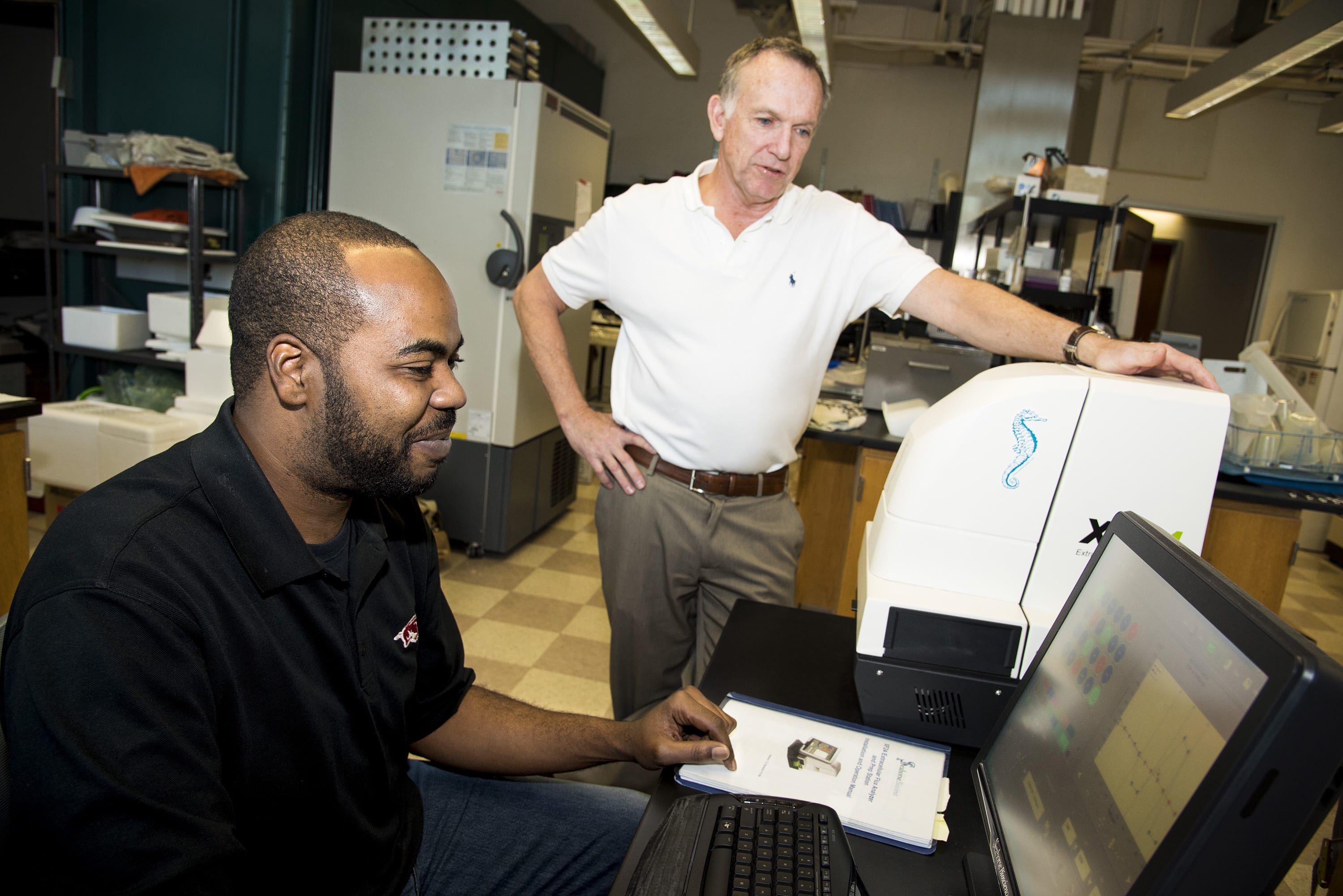Oxygen, Poultry Feed Efficiency and Human Health

The Problem
The overproduction of reactive oxygen species — also known as ROS or oxidants — can lead to oxidative stress, a cellular imbalance when sufficient antioxidants are not available to neutralize them. This imbalance, which largely takes place in mitochondria, has implications for feed efficiency in poultry as well as for human health.
The Research
In early research, Dr. Walter Bottje discovered that oxidative stress was involved in pulmonary hypertension syndrome, or ascites, in poultry. Later investigations showed that animals with higher feed efficiency — how well food is converted into animal growth and meat production — had a better mitochondrial function that included less mitochondrial ROS production and less oxidation of proteins.
More recently, collaborating with AAES colleagues Dr. Byungwhi Kong and Dr. Sami Dridi, Bottje has been investigating global gene and protein expression in a muscle that provides a picture of how feed efficiency works at the cellular level. Oxidative stress turns out to be the first of many cellular activities affecting feed efficiency that Bottje has identified. Discovering the causal agents of oxidative stress and locating gene markers that identify more efficient birds is critical to poultry breeding programs.
This research on cellular functions also helps discern the functions by which oxidative stress affects human health. Chickens have proven to be good models for understanding human health concerns like obesity.
The Bottom Line
High feed efficiency with optimal animal health is critical to the poultry industry, especially in light of a need to grow more food to feed a growing world population. Bottje’s discoveries are also helping to understand the causes of obesity, diabetes and other human health issues.
The Researcher

Walter Bottje
Professor of Poultry Physiology in the Department of Poultry Science since 1993
Bottje earned his bachelor’s degree in zoology from Eastern Illinois University, his master’s degree in animal science from Southern Illinois University and his Ph.D. in physiology from the University of Illinois, Urbana. His current research focus is on the role mitochondria play in the phenotypic expression of feed efficiency in broilers. His previous research investigated the role of mitochondria in the pathophysiology of ascites.
»
